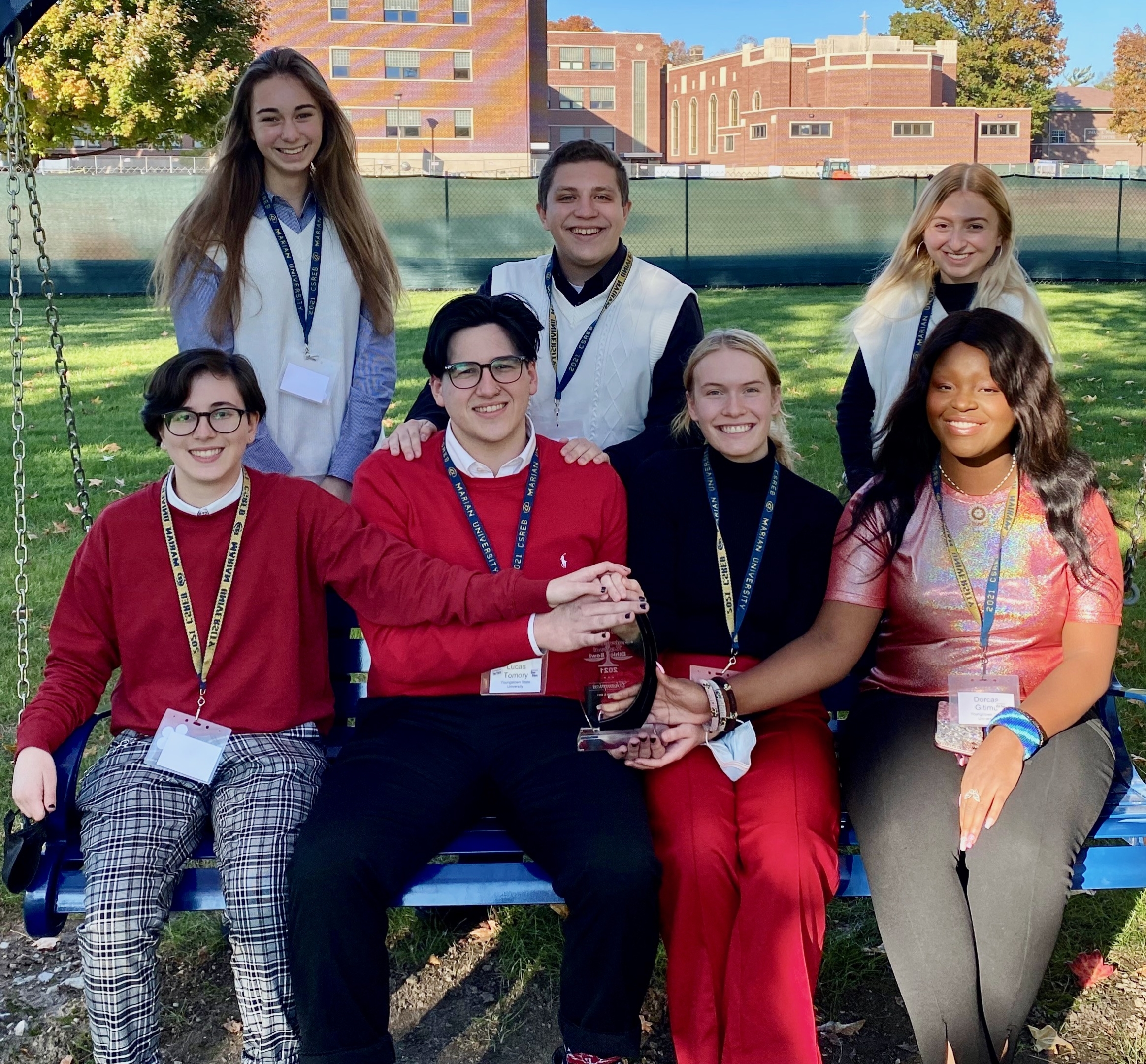Penguin Ethics Bowlers continue winning ways

For the sixth consecutive year, the Ethics Bowl team at Youngstown State University won the Central State Regional Ethics Bowl contest, sponsored by the national Association for Practical and Professional Ethics.
With the victory, the YSU team advances to the national contest in February 2022 in Cincinnati. It is the seventh consecutive year that the university has qualified for the national competition.
YSU team members are Eva Lamberson, Philosophy and English major; Lucas Tomory, Philosophy and Psychology major; Dorcas Gitimu, Political Science major and Philosophy minor; and Shianna Gibbons, Journalism major and Philosophy minor.
In addition, YSU’s second team placed sixth in the competition. Team members are Lauren Myers, Criminal Justice major; Jordan Pintar, Philosophy and Political Science major; and Dominic Adams, Philosophy and Political Science major.
“Team 2 was composed entirely of participants in their first year in Ethics Bowl and had been told early on that this first year was not about winning, but just about learning how to do Ethics Bowl,” said Alan Tomhave, professor of Philosophy. “Well, they won all three of their rounds of the competition.”
The teams are coached by Tomhave and Mark Vopat, professor of Philosophy and Religious Studies.
The competition focuses on a set of cases that teams have slightly less than two months to study and research. At the competition, teams do not know which of the cases they will have to address, nor do they know the question that they will have to answer. Further, they are not allowed any notes on the research that they have done on any of the cases. Once a case is revealed and the question is asked, the team has either one or two minutes (depending on whether it is a regional or national Ethics Bowl) to prepare a presentation. The presentation must offer a moral argument to answer the question and consider potential objections to the team’s position. A second team then provides a commentary on the first team’s argument, with the original team then getting a chance to respond. Finally, there are three judges who get to ask questions.
